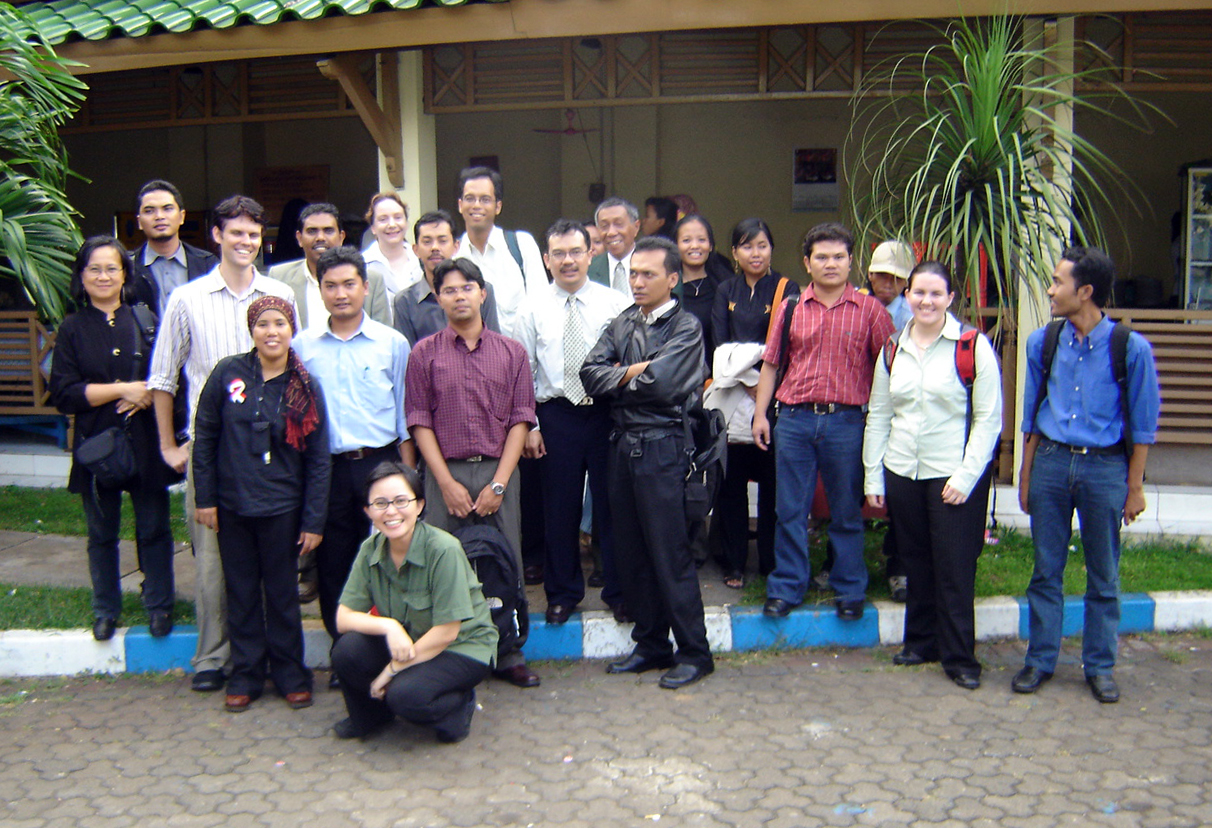Catherine Coumans of MiningWatch flew to Jakarta in June at the request of our partner organization JATAM to testify as an expert witness before the constitutional court of Indonesia. At issue was the constitutionality of a Government Decree granting 13 mining companies an exemption from a prohibition against open pit mining in protected forests. Eleven organizations and 81 citizens were appellants in the case. In July the constitutional court upheld the prohibition against open pit mining in protected forests and denied 6 companies the exemption they sought, including Weda Bay of Canada.
Indonesia enacted Forestry Act No. 41 in 1999. The goals of the Act are: protecting watersheds; preventing salination of water resources; preventing soil erosion and flooding; and maintaining the natural fertility of the soil. To achieve these goals the Forestry Act of 1999 bans open-pit mining in protected forests, among other measures. Soon after this law was enacted, the mining lobby in Indonesia went into high gear claiming undue hardship (for those companies with plans to mine in protected forests) and the creation of an investor unfriendly climate for international mining companies considering Indonesia as a place to do business. In all, some 158 companies claimed to be affected by this new law, but the international mining companies were reported to play the most aggressive role in defense of their interests by threatening to sue the Indonesian government if it did not reverse itself. Canadian companies affected by the 1999 Forestry Law were Placer Dome in South Kalimantan's Meratus forests (Placer subsequently withdrew from this concession); Weda Bay Minerals Inc, which is developing a cobalt mine on Halmahera Island, North Maluku; and Inco, operator of nickel mining and smelting operations in South and Central Sulawesi.
In March of 2004, President Megawati Sukarnoputri issued a Government Decree "in lieu of law" (Perpu 1/2004), thereby invoking a state of emergency under Article 22 of the Constitution. While the Decree stipulates that all licenses and contracts for mining in forests made before the enactment of the 1999 Forestry Act are now valid for the remainder of the original term of the license or contract, only 13 companies were named as benefiting from the Decree because they had "proven reserves and are economically viable." The majority of the lucky 13 are foreign owned companies including Inco and Weda Bay from Canada. In July 2004, the Decree was enacted by the House of Representatives as Law No.19/2004.
This history led to the constitutional challenge by civil society groups and the participation of Catherine as a witness before the court. Upon the advice of lawyers for civil society, Catherine presented broadly on the validity of protecting areas from mining and on mining's potentially major impacts. See the text of Catherine's presentation.
While in Indonesia Catherine also participated as a panelist in a press conference on this topic, together with Emil Salim, and met with the Environment Minister to discuss this issue and Submarine Tailings Disposal.
